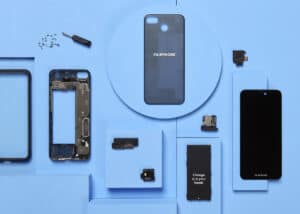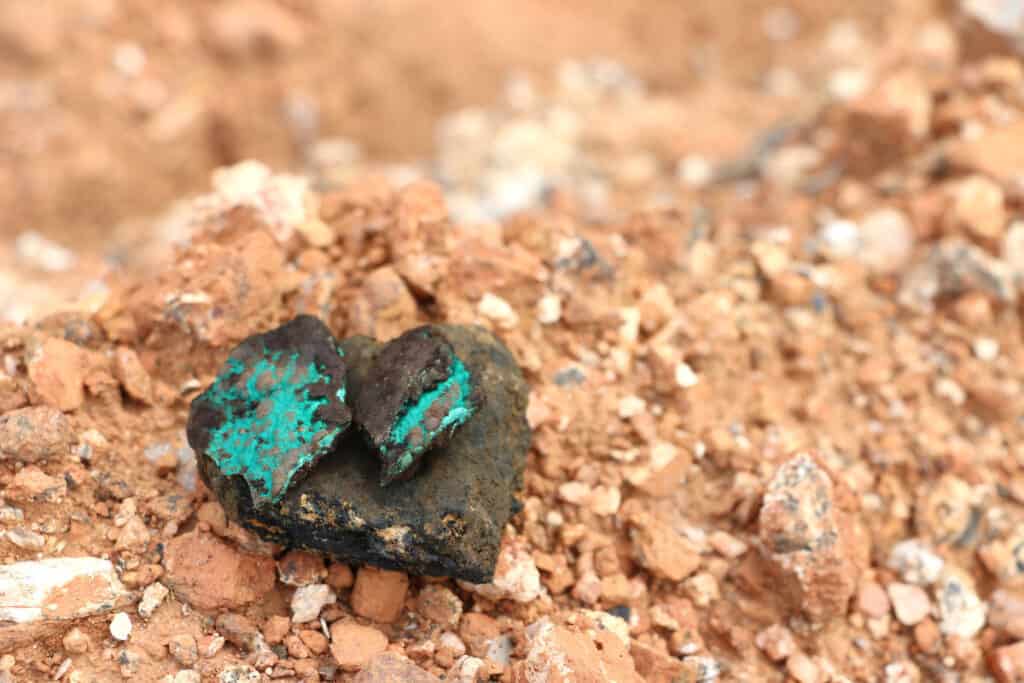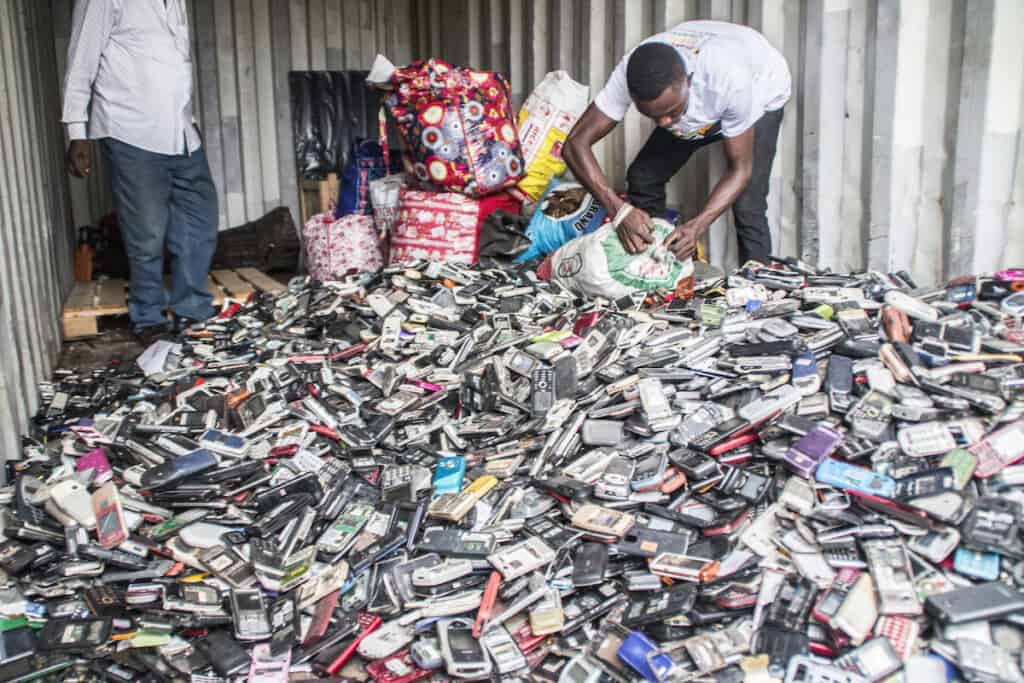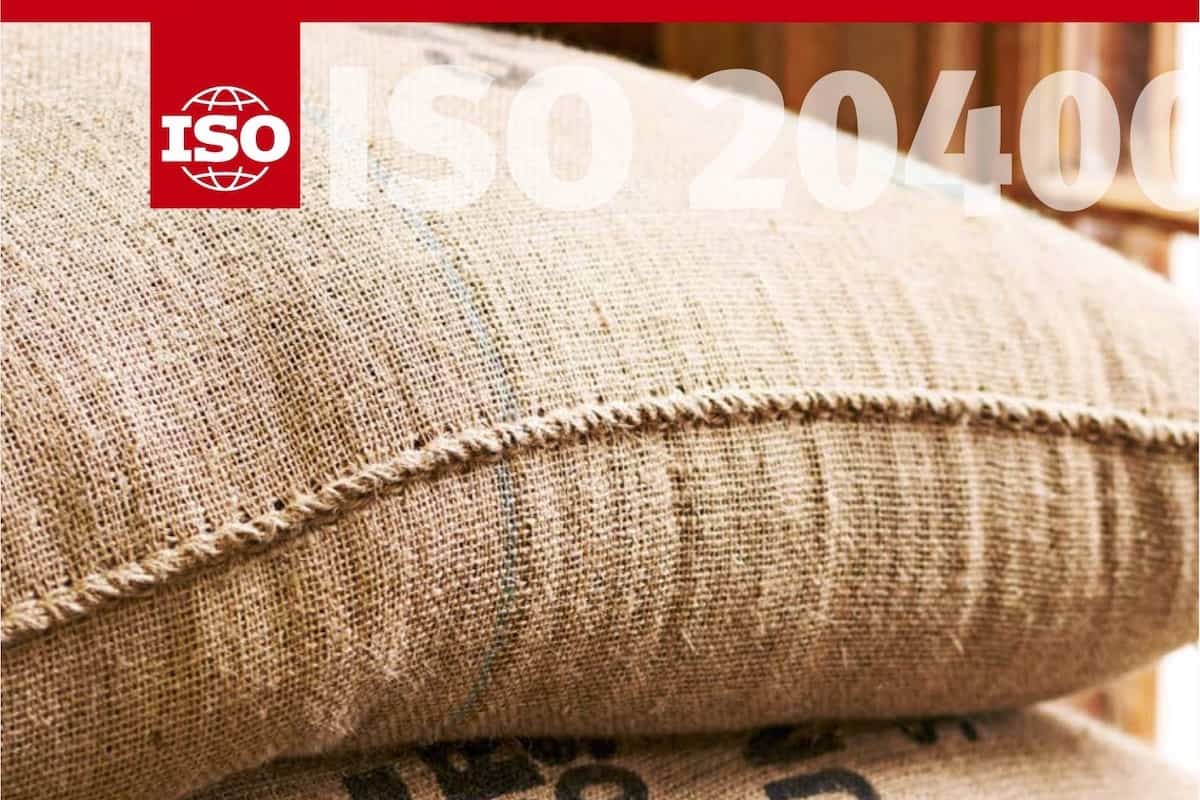For any business looking to tackle its environmental and social impacts, the first challenge can be deciding the order of priority when responsible sourcing amid the complexities of modern, global supply chains. This is especially the case in high-visibility markets such as consumer electronics involving contentious materials like cobalt. So, in this SustMeme Guest Post, Founder & CEO of TDI Sustainability, Dr Assheton Carter explores how focus and leadership can help you decide what (not) to do and when (not) to do it.

AC: This month sees the launch by sustainable smartphone pioneer Fairphone of the company’s Fair Materials Sourcing Roadmap 2023. The creation of this roadmap has been a lengthy and complex process, but the resulting plan of action gives Fairphone the ability to demonstrate publicly how it is addressing the challenge of responsible sourcing — and we at TDI Sustainability are proud to have played a part in its creation.
The process has examined each touchpoint of the material supply chain, from mining, design and manufacture, to waste recovery and recycling. By gaining a more intimate understanding of the materials, people and practices at each point, Fairphone can begin to identify where and how it can push further towards producing a sustainable product.
While Fairphone’s Roadmap is specifically designed for its business, there are lessons that can be learned across the whole consumer electronics industry and beyond.
Recognise your role and responsibility
As Fairphone states, the electronics sector has a responsibility, as well as an opportunity, to address and catalyse social and environmental improvements throughout material chains, including in mining and recycling.
There are, however, so many questions around how we go about creating more sustainable material supply chains, not least where the responsibility lies.
Whose business is it? Is it the responsibility of business?
Do we have the influence to do anything? What can and should we do?
From a corporate risk perspective, businesses across all sectors will have legal or regulatory obligations to meet. They will also face pressure from investors, need to have security of supply and many will strive to meet voluntary standards. But will the corporate world recognise a moral obligation? More importantly, will its customers?
Corporate reputation can be both the carrot and the stick driving the sustainability agenda in business. Those that fail to act risk rebellion from the media and consumers, while those who embrace the challenge of acting above and beyond their obligations and can demonstrate measurable outcomes from their actions, stand to gain advocacy and acclaim.
Prioritise — you can’t tackle everything
According to the OECD Due Diligence Guidance for Responsible Business Conduct, the recommended approach to tackling business impacts in order of priority is as follows:
“Where it is not feasible to address all identified impacts at once, an enterprise should prioritise the order in which it takes action based on the severity and likelihood of the adverse impact.”
Fairphone is a case in point. The team recognised that they could not include all of the concerns associated with all of the company’s many supply chains but focused on a shortlist of opportunities. This provided a starting point to identify the most significant and persistent issues and facilitated a good general knowledge of their supply chain.
We have been working with Fairphone since 2017, when we helped them develop a strategy that matched their ambitions and corporate culture. This approach was adopted again to prioritise the materials for the 2023 Roadmap.
The first stage was to analyse 38 of the materials in a smartphone using a set of criteria based on our expert knowledge, and Fairphone’s supply chain needs. The criteria allowed Fairphone to funnel the materials and to prioritise issues, geographies, metals and industry segments to identify opportunities for intervention by Fairphone and its industry peers.
With the launch of the 2023 sourcing roadmap, Fairphone has shortlisted 14 materials to focus on.
Don’t demonise cobalt (or any other material)
The use of some materials comes with significant reputational risk. Cobalt is a prime example — it’s the metal we all love to hate. It’s a material so ubiquitous in our everyday lives (in our devices, our tools, our cars, jewellery, cosmetics and even some foods), yet it is considered a high-risk mineral.
Cobalt is mined in the Democratic Republic of Congo (DRC) — a country rich in minerals and natural resources but plagued by violence, economic and social inequality, child labour, poor human rights, an absence of effective governance, and minimal regard for health and safety. So what can be done?
One strategy for businesses using cobalt is to replace the material where they can, to drive materials recovery and recycling, reducing reliance and the level of risk in their own supply chain. Yet this doesn’t solve the problem, it simply avoids it. The result of this can be falling income for the miners and falling standards of living in their communities.
The problem is not the material; it is the way in which it is produced. So, if brands can recognise this and make impact part of their strategy — as Fairphone is doing through a number of initiatives to support mining communities in the DRC — we truly will be driving sustainable practices and business, to the benefit of all.
An important step that Fairphone has made to address this (along with the teams at TDI Sustainability and partner organisation The Impact Facility) is the founding of the Fair Cobalt Alliance (FCA). The FCA strives to drive the development of fair cobalt by supporting the professionalisation of artisanal and small-scale mining. The goal is to make mines safer, to minimise environmental impact and create decent working conditions for men and women working at the mines.
Long-term ambition, but realistic short-term goals
Longer lasting products, end-of-life disposal and takeback and recycling programmes are all long-term ambitions for sustainability conscious businesses in the consumer electronics market like Fairphone. This idea of the circular economy, with little reliance on the extraction of new materials is the panacea.
The reality, however, is far more complex — not all materials can be recovered (so there is a responsibility for safe disposal here) and there are challenges within the recycling sector around capability, availability and cost.
Furthermore, with global population growth and economic development fuelling demand for devices, our appetite for many of the materials used will outpace the industry’s ability to meet the need through recycling.
In effect, this means, mining will remain part of the process for years to come.
So, while sustainable sourcing and production remains the end goal, we need to zoom in on the here and now, with practical and realistic goals in the short term.
Material impact is more than risk mitigation
We must draw a distinction between risk mitigation and material impact. The former sees business identifying areas of the supply chain which pose a risk to the business — to reputation, to production capacity, to compliance — then, removing that risk through diversion or avoidance.
The latter refers to addressing the root cause of the issues and identifying opportunities for positive change. This is where a business can alter the lives and livelihoods of communities in the supply chain for the better.
Material impact is what is needed to meet the hopes and expectations of company stakeholders and is ultimately a driver for positive reputation. In short, material impact is good for business.
In Fairphone’s case, in addition to mapping and ranking raw materials by ‘risk’ and ‘impact’, they identify the initiatives and projects that they could join, or start, that would make a significant difference to improving operating practices. This is an area where we are supporting Fairphone to scale and implement.
Therefore, with multiple, complex material supply chains, consumer electronics firms cannot (and should not) attempt to identify and address all concerns at once. To help businesses and the lives of communities touched by the making of smartphones, what’s needed is focus and leadership; the ability to test and learn, to build and evolve a robust sustainability framework.

Dr Assheton Carter is Founder and CEO of TDI Sustainability and CEO and Trustee at The Impact Facility. TDi Sustainability has been involved with Fairphone since 2017, helping the business better understand its supply chain, recommending where changes can be made to improve sustainability and also driving initiatives for positive material impact.
You can check out the full archive of past Guest Blog posts here.
Would you like to Guest Blog for SustMeme? For more info, click here.
SUSTMEME: Get the Susty Story Straight!




